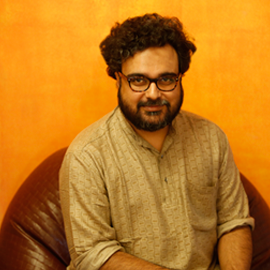After JNU & HCU, BJP's next target seems to be Aligarh Muslim University. Here's why

Political parties are seeking to reap dividends from the recent Jawaharlal Nehru University row. The BJP and RSS in particular are working overtime to take the nationalism debate to other parts of the country.
RSS and its affiliates are circulating the footage of "anti-India" slogans being chanted in JNU, even though the authenticity of the videos are under dispute.
The wrangling over the 'Bharat Mata Ki Jai' slogan is also part of the same strategy. Now, right-wing forces are searching for new battlegrounds to wage this ideological fight and poll-bound Uttar Pradesh appears to be their next chosen front.
Also read - BJP in UP: Why a party with 73 MPs is afraid it won't have even 73 MLAs
If sources within the Sangh and the BJP are to be believed, their next target is Aligarh Muslim University (AMU).
"The law and the Constitution are being flouted in some academic campuses because of the politics of appeasement. There is nothing wrong in raising this issue. AMU is not a minority institution on paper. A false impression has been created to this effect," says one RSS leader on the condition of anonymity, disclosing that the organisation will be raising the AMU issue soon.
"The university has been forcibly made a bastion of the minorities. As a result, Dalits and other backward communities are being denied reservation in jobs and admissions," he adds.
Clearly, this seems to be an attempt to drive a wedge between Muslims on one hand and backward communities on the other.
AMU is not a minority institution. This is a misconception created by appeasement: RSS leader
"The university has been ignoring the provisions of the Constitution for long. Successive governments have remained silent because of political compulsions. However, this cannot continue forever. We must call a spade a spade. We will expose how a government funded institution is falsely claiming to be a Muslim university, thus denying deprived segments their due rights," says this leader.
So if RSS has its way, AMU is going to be the next battleground between liberal and right-wing forces.
Why Aligarh?
AMU has historically played a leading role in shaping opinion among India's Muslims. In that sense it is an ideal target for the the Hindu Right.
However, the RSS' main aim is to create a divide between backward communities and Muslims before the UP elections.
The biggest threat for the BJP in UP is the coalescing of Dalits and Muslims ahead of next year's elections in Uttar Pradesh. The electoral divide between the two communities is necessary not only for BJP, but also for the Samajwadi Party.
The recent JNU controversy has led some observers to believe that Left politics is resurrecting itself. But the real impact on the ground is exactly the opposite. The BJP & RSS have tried to link nationalism with a particular ideology and identity. Many seem to be buying their argument. The balance of the public opinion is clearly tilted in favour of the Modi government in this regard.
However, the wind is blowing in the opposite direction among Dalits and minorities. The speculation over the review of the reservation policy and Rohith Vemula's suicide have significantly added to the alienation of Dalits from the present government.
RSS aim is to link AMU's minority status to the quota issue and pit Dalits against Muslims
Muslims were never favorably disposed towards the BJP any way and this sentiment has been reinforced by incidents like the Dadri lynching and the Latehar killings.
Muslims aren't particularly happy with the Samajwadi Party either even though the party claims to champion their cause. The community won't forget the fact that the Muzaffarnagar riots and the Dadri lynching took place under the SP's watch.
Therefore, it is likely that Dalits and Muslims could come together ahead of the UP elections. And the principal beneficiary of this will be the Mayawati-led BSP.
The BJP on its part has realised that it cannot win UP unless it weans away the vote bank of other parties, particularly the BSP's Dalit support base.
Also read - BJP's new messiah: RSS picks Dattatreya Hosabale to lead Mission UP
Dalits versus Muslims
Pitching Dalits against Muslims could be the biggest political achievement of the Hindu right wing before the 2017 elections. It would be a huge success for the BJP's social engineering efforts.
Nothing could divide Dalits/backward classes and minorities than the issue of reservation. This is the reason RSS is crying foul over the minority status of AMU and exhorting Hindus to stand against it.
The beef controversy and spat over so-called nationalistic slogans can do the rest for BJP. As one BJP leader puts it, "The pseudo-secularists have always opposed cultural nationalism. But they cannot have separate constitutions for Hindus and Muslims. Ambedkar had never favored such a scenario. How can one deny Dalits and backward communities their due rights?"
"There are so many students like Rohith Vemula who are deprived of their rights. We have to speak up for them," he sums up.
The clouds of the divisive politics are looming large over Uttar Pradesh. Only time will tell whether the downpour of narrow political interests will drown the interests of the state.
Edited by Aditya Menon.
Translated by Deepak Sharma.
More in Catch - Rahul Gandhi 2.0: Pappu can dance! With a little help from Prashant Kishor
Is a BSP-Congress-RLD Grand Alliance emerging in UP?
5 reasons why the Congress is in a shambles in Uttar Pradesh







![BJP's Kapil Mishra recreates Shankar Mahadevan’s ‘Breathless’ song to highlight Delhi pollution [WATCH] BJP's Kapil Mishra recreates Shankar Mahadevan’s ‘Breathless’ song to highlight Delhi pollution [WATCH]](https://images.catchnews.com/upload/2022/11/03/kapil-mishra_240884_300x172.png)

![Anupam Kher shares pictures of his toned body on 67th birthday [MUST SEE] Anupam Kher shares pictures of his toned body on 67th birthday [MUST SEE]](https://images.catchnews.com/upload/2022/03/07/Anupam_kher_231145_300x172.jpg)






